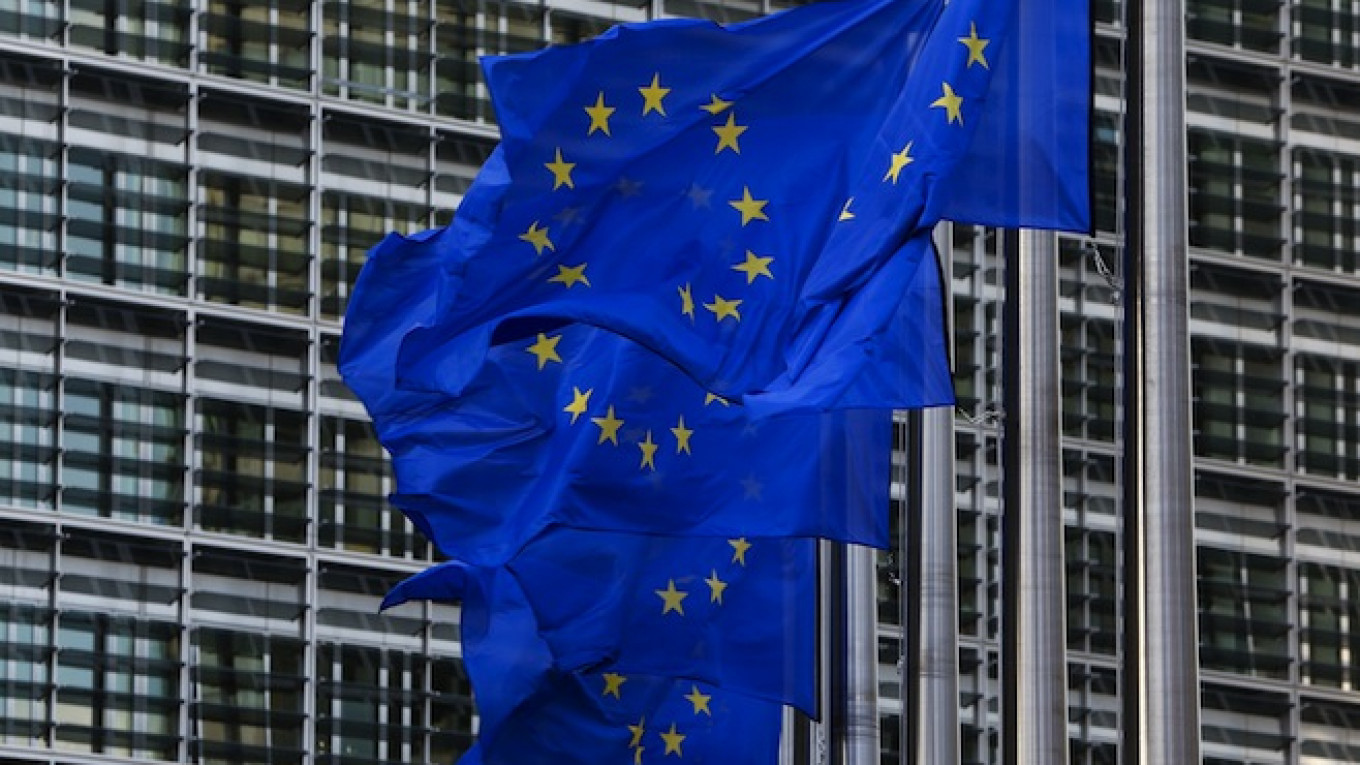The European Parliament has restricted access of the Russian delegation to the assembly in a jab at Moscow for banning 89 EU politicians from entering Russia.
While Russia's EU Ambassador Vladimir Chizhov and another unidentified diplomat will still be allowed to freely visit the parliament building, the other members of the delegation will not. Additionally, requests for visits from members of the two chambers of Russia's parliament, the State Duma and the Federation Council, would be judged on a “case by case basis,” European Parliament President Martin Schulz said Tuesday, according to a statement released by his office.
Earlier in the day, the Russian press mistakenly interpreted the announcement from Schulz's office to mean that the ambassador himself would have restricted access to the building.
Russia's Deputy Foreign Minister Sergei Ryabkov said his government's blacklist of 89 EU officials was a ?€?legitimate, appropriate measure [in response] to the unacceptable restrictions on entering the EU, made under far-fetched pretexts for Russian representatives,?€? TASS reported. The EU has imposed sanctions, including asset freezes and travel bans, on Russian officials who were deemed to have played key parts in the annexation of Crimea from Ukraine or Moscow's support for separatists in eastern Ukraine.
Meanwhile, Ryabkov charged, EU's ?€?retaliatory measures for our retaliatory measures are simply a reflection of intellectual political mediocrity,?€? he was quoted by TASS as saying.
?€?I think one can generally skip going there, to that assembly. There is nothing to do there, with or without those restrictions,?€? he said, TASS reported.
Ryabkov's subordinates have been less reserved in their comments about the situation. A deputy chief of the Foreign Ministry's public information office, Maria Zakharova, wrote on her Facebook page that ?€?Eurobureaucracy occasionally returns to the times of the Holy Inquisition.?€?
?€?A hunt for Russian witches has been declared,?€? she posted.
The Parliamentary Assembly of the Council of Europe, or PACE, had previously suspended the Russian delegation's voting rights over Russia's role in the Ukraine crisis.
The move — or the Russian delegation's apparent forgetfulness about it ?€” prompted a round of laughter at a PACE session earlier this year, when Moscow's envoy discovered that his voting terminal did not work.
?€?I'm far from thinking that it was done intentionally,?€? the diplomat said, complaining about what he said seemed to be a malfunction, only to be informed that ?€?the Russian delegation has no right to vote.?€? The assembly responded with a round of laughter and applause.
The EU parliament's Shulz told the Russian ambassador Tuesday the latest restriction on access was imposed after ?€?the Russian authorities have failed to ensure transparency in their decisions, in line with international law and legal obligations,?€? according to a statement released by the European assembly.
The parliament was also suspending its engagement with the EU-Russia Parliamentary Cooperation Committee, the statement said.
An earlier version of this article incorrectly stated due to a misinterpretation of Schulz’s words that the European Parliament had restricted the Russian ambassador's access to the assembly. Access has in fact been restricted for everyone in the Russian delegation except the ambassador and one other unidentified diplomat.
A Message from The Moscow Times:
Dear readers,
We are facing unprecedented challenges. Russia's Prosecutor General's Office has designated The Moscow Times as an "undesirable" organization, criminalizing our work and putting our staff at risk of prosecution. This follows our earlier unjust labeling as a "foreign agent."
These actions are direct attempts to silence independent journalism in Russia. The authorities claim our work "discredits the decisions of the Russian leadership." We see things differently: we strive to provide accurate, unbiased reporting on Russia.
We, the journalists of The Moscow Times, refuse to be silenced. But to continue our work, we need your help.
Your support, no matter how small, makes a world of difference. If you can, please support us monthly starting from just $2. It's quick to set up, and every contribution makes a significant impact.
By supporting The Moscow Times, you're defending open, independent journalism in the face of repression. Thank you for standing with us.
Remind me later.


